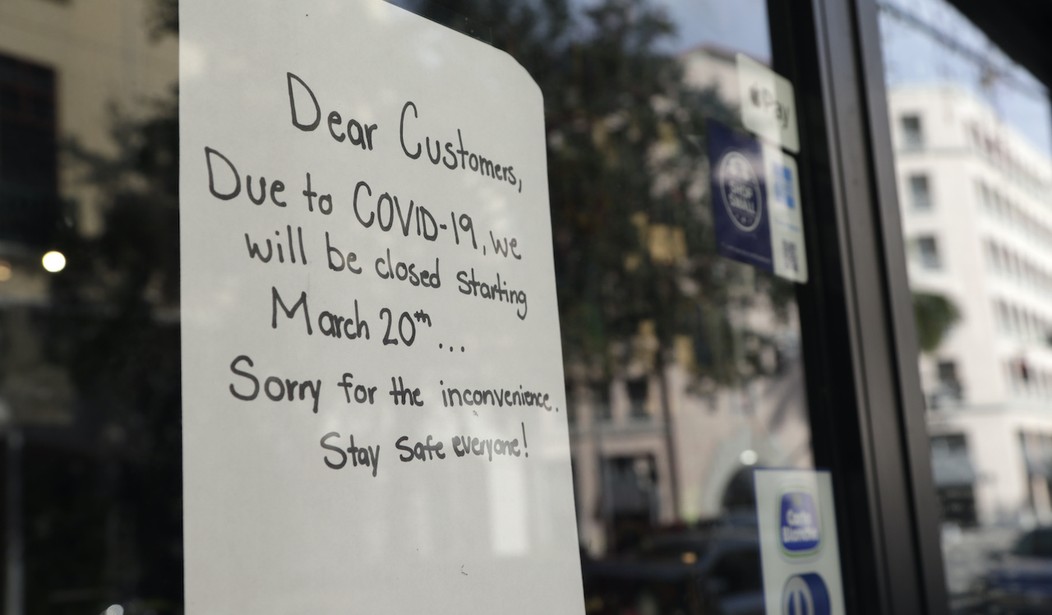In a recent coalition letter to “decision makers,” 150 health experts call for a second lockdown.
Certainly this letter is well-intentioned, with its authors citing the awful prospect of losing a projected “200,000 American lives by November 1st” as motivation for penning the message. Healthcare professionals are nobly bound to the hippocratic oath. But realistically, the idea of shutting America down again is impractical and insulting, especially to those who have complied with the first nationwide lockdown.
The whole point of the first lockdown was to flatten the curve, ensure that we did not overwhelm the hospitals, and give people some time to adjust to living in a new normal. Until a vaccine is made (and even then, COVID-19 could still exist), that new normal involves living everyday with the threat of the virus. Should we exist in a cycle of opening and closing until a vaccine is ready? I don’t think so. Humans are not made for such isolation and instability. At least we now know that things like masks, being mindful of our surroundings, and limiting high risk activities can help slow the spread of COVID-19.
Still, tensions are high. People are angry and all too eager for opportunities to expose and call each other out. But in a critical examination of those up on soapboxes, I have been surprised to find that many who publicly preach for an extension of lockdowns and condemn the “idiots in this country” have made decisions in their own private lives to defy lockdown mandates. But, because they claim to be ‘sensible’ and promise to be ‘safe,’ he or she is allowed to make an exception to the rule that he or she wants others to follow.
Clearly this kind of logic (or illogic) introduces an ethical tangle. When you force your will upon others, but make an exception for yourself, you become a hypocrite. And as soon as you decide that it is appropriate to force your will upon others, you give other people that same permission to force their will upon you. In short, this kind of logic risks tyranny.
Recommended
It is true that some people are not following the ‘rules’ right now. But some people will never follow the rules. There are going to be people who won’t wear masks and won’t take safety precautions no matter what they are told. The law-abiding should not have to suffer due to the carelessness of a few.
But perhaps the worst part of a second shutdown would be seeing the government resume its nanny state reign. Though many would argue that the first lockdown helped prevent needless death, it’s worrying how little that unprecedented instance of government overreach bothered people. Does anyone else agree that it was entirely too easy for politicians to assume all that control?
Government shouldn’t decide whether or not the economy can operate. Government shouldn’t tell people to stop working. It would be smarter to let businesses decide how to innovate. And now, with many state lockdowns lifted, most businesses seem to have adapted just fine—those that were actually able to stay in business, of course. Almost every store I have gone to since reopening has a sign on the door stating ‘mask required.’ Businesses have every right to deny services to those who do not comply with their rules. But to push for a second shutdown, in a country as large and diverse as the United States, is unfair, unrealistic, and grossly out of touch. We don’t need a one-size-fits-all solution.
Privilege is a hot topic these days, but the privilege to work from home and cozy up with family as the pandemic rages is one that our society is not so keen to talk about. Instead, we place signs in our windows, hailing grocery and other ‘essential’ workers as heroes, and hope that no one notices the disparity between us and those we are praising. How essential is that white collar job you were able to continue from home simply because you own a laptop and internet connection? The concept of an essential worker is farcical, the definition of essential work arbitrarily decided.
My gut feeling is that most people want to move on with life. Even stronger than that is my feeling that the American people know enough now to reasonably protect themselves and be courteous of others without hiding in their houses. But perhaps what this discourse really gets at is the larger problem of America’s deteriorating social fabric—why don’t we trust each other anymore? What can we do to restore trust? It’s a tall order. But perhaps the best way to regain trust involves a thorough reconsideration of liberty and what it would mean to make it a reality for ourselves without taking it away from others.
Parissa Sedghi is an executive vice president at FreedomWorks

























Join the conversation as a VIP Member